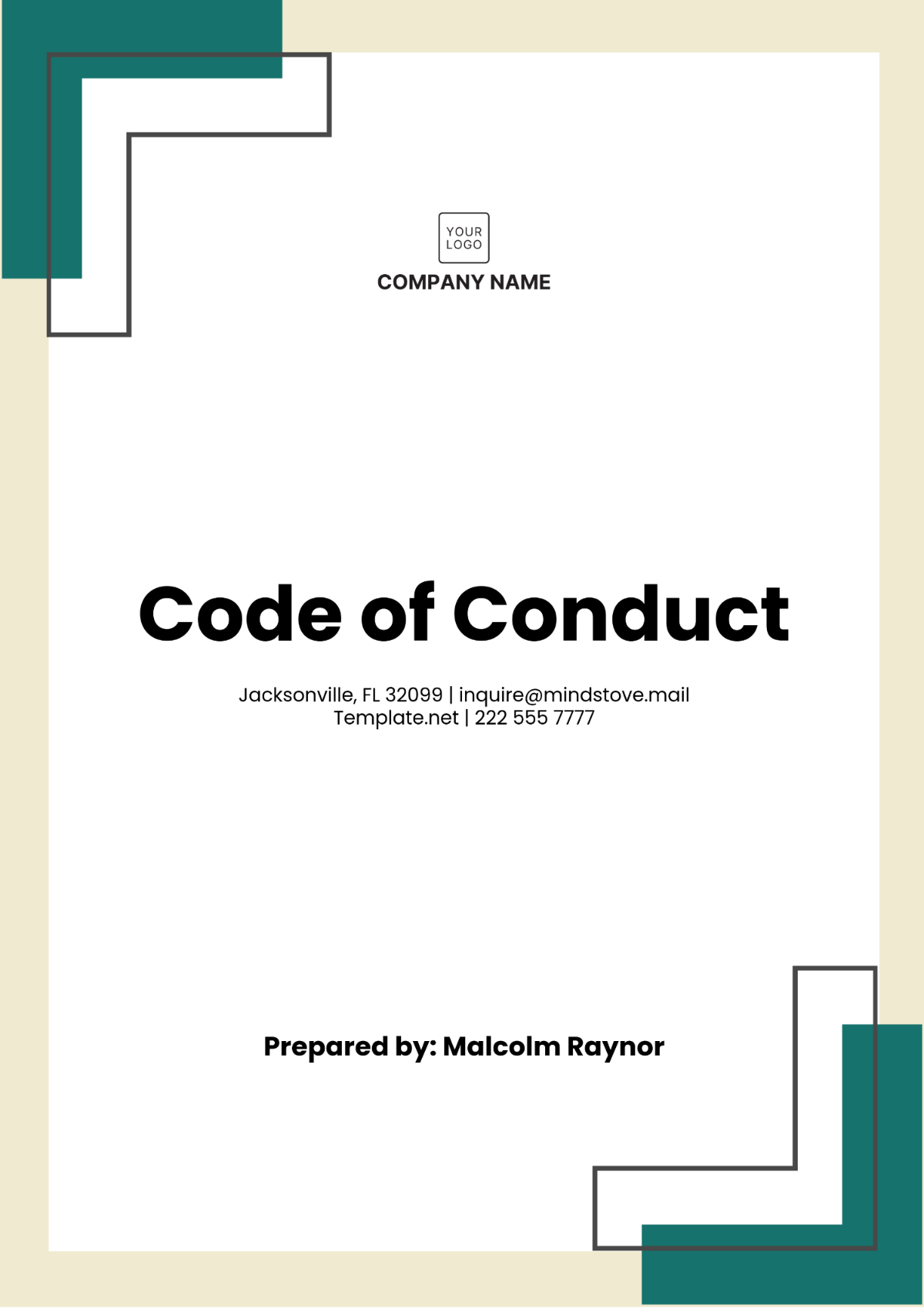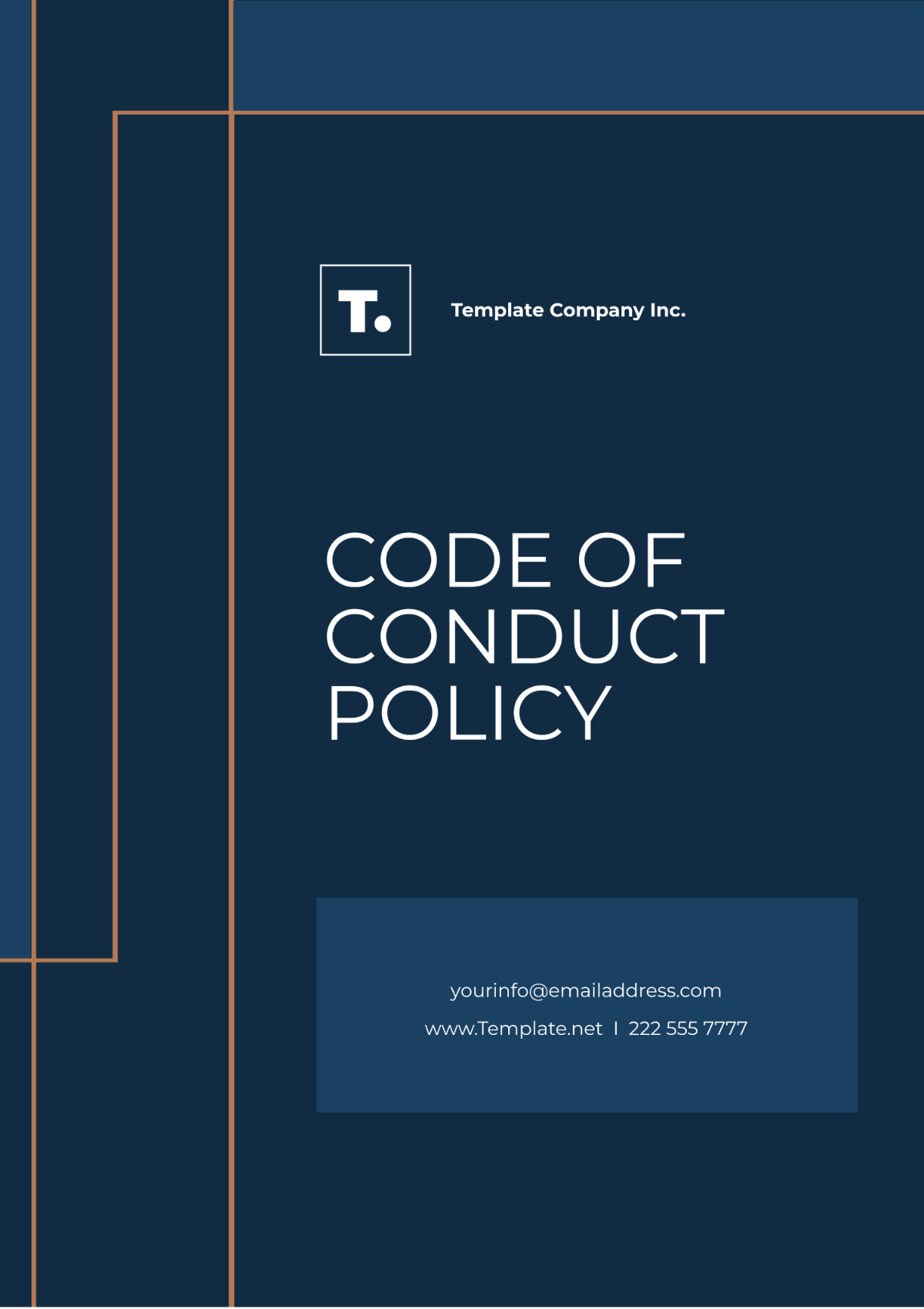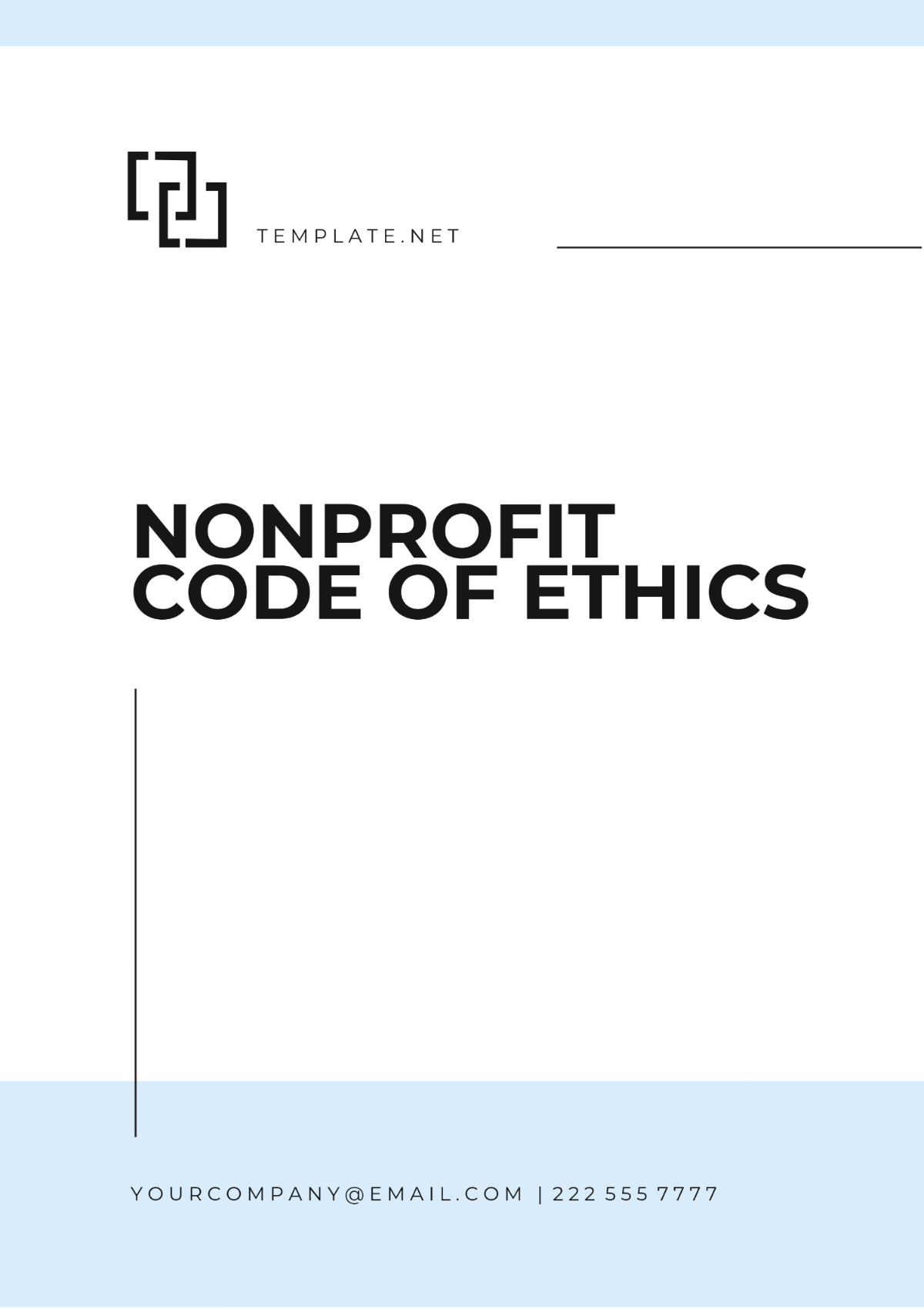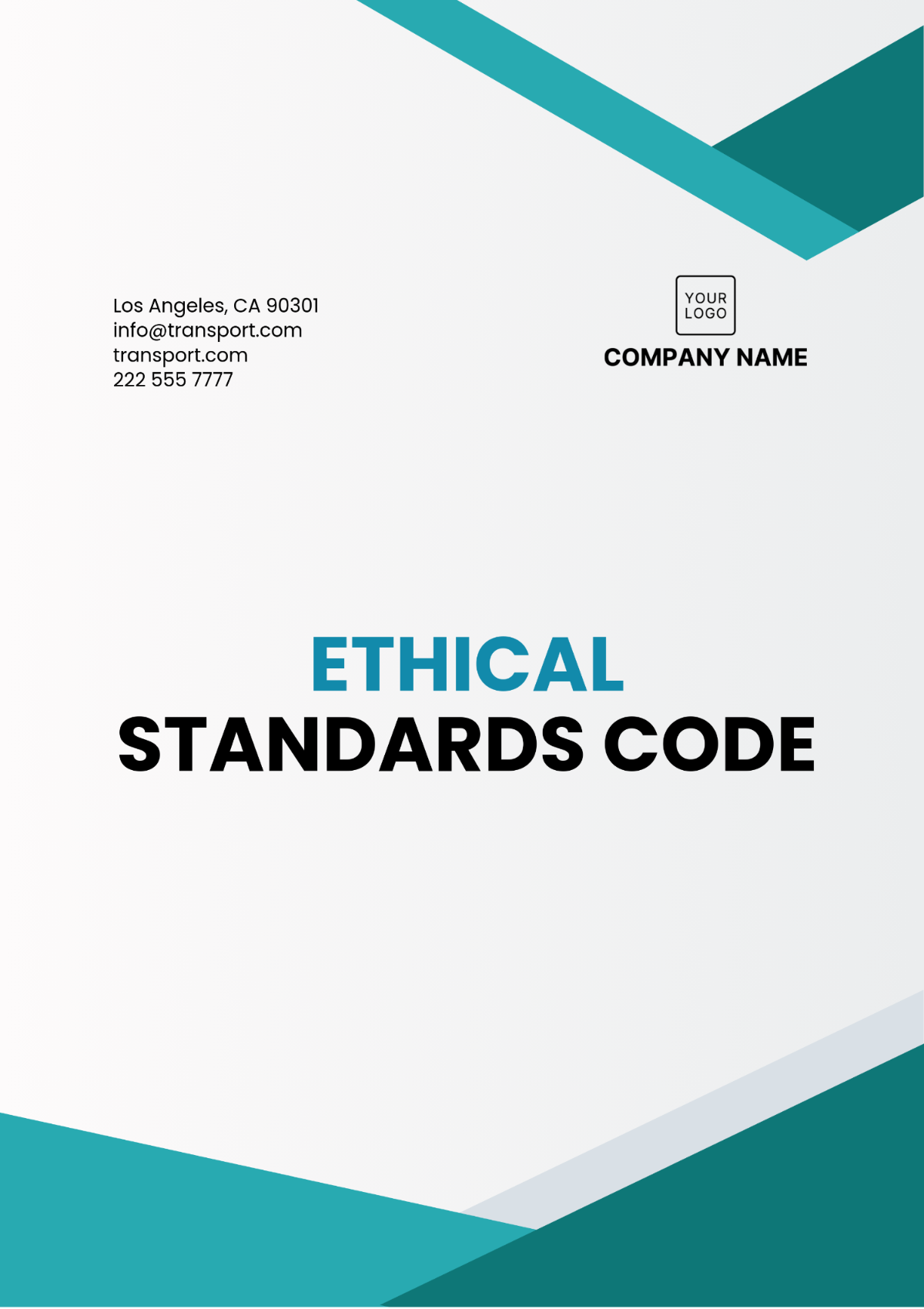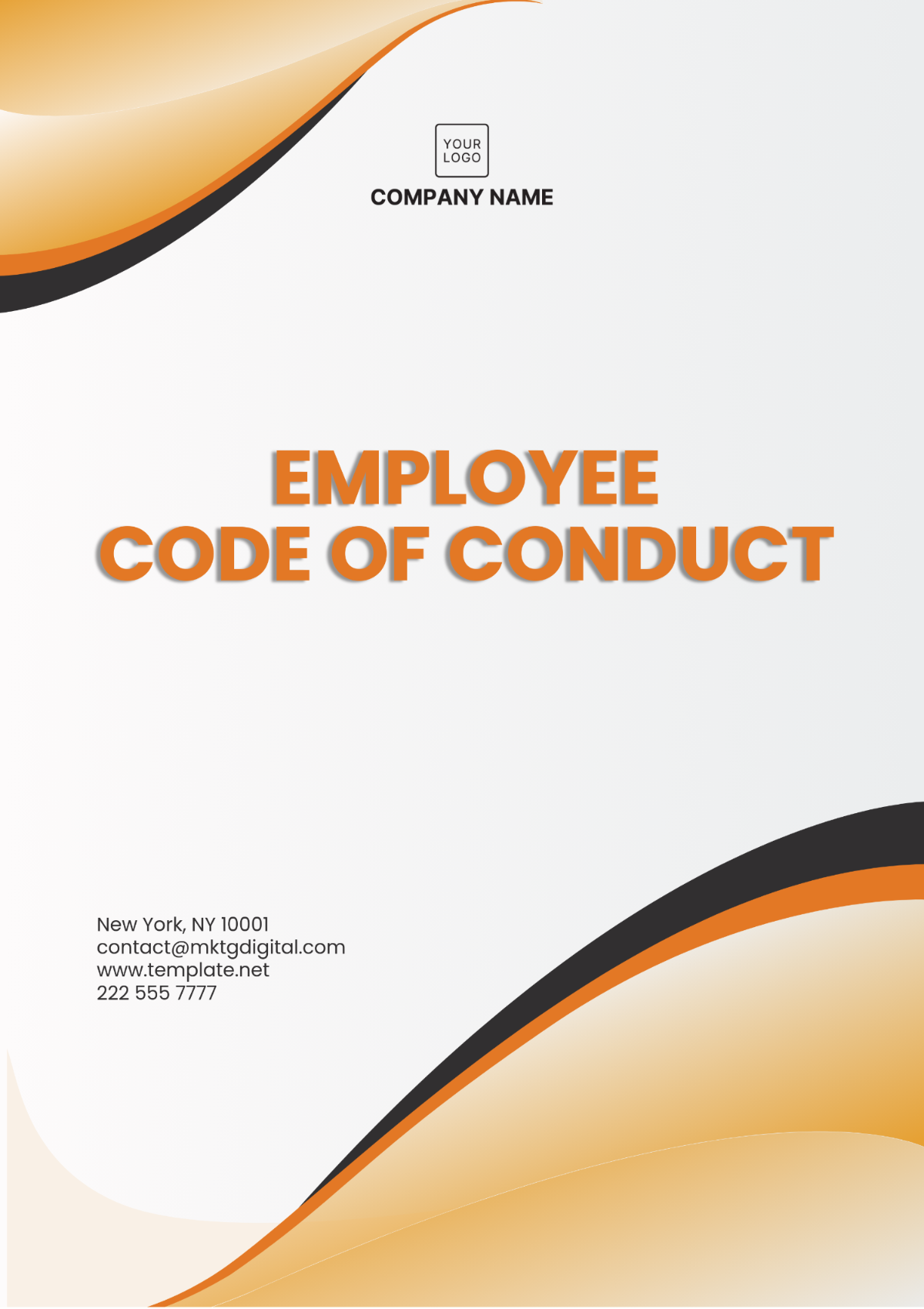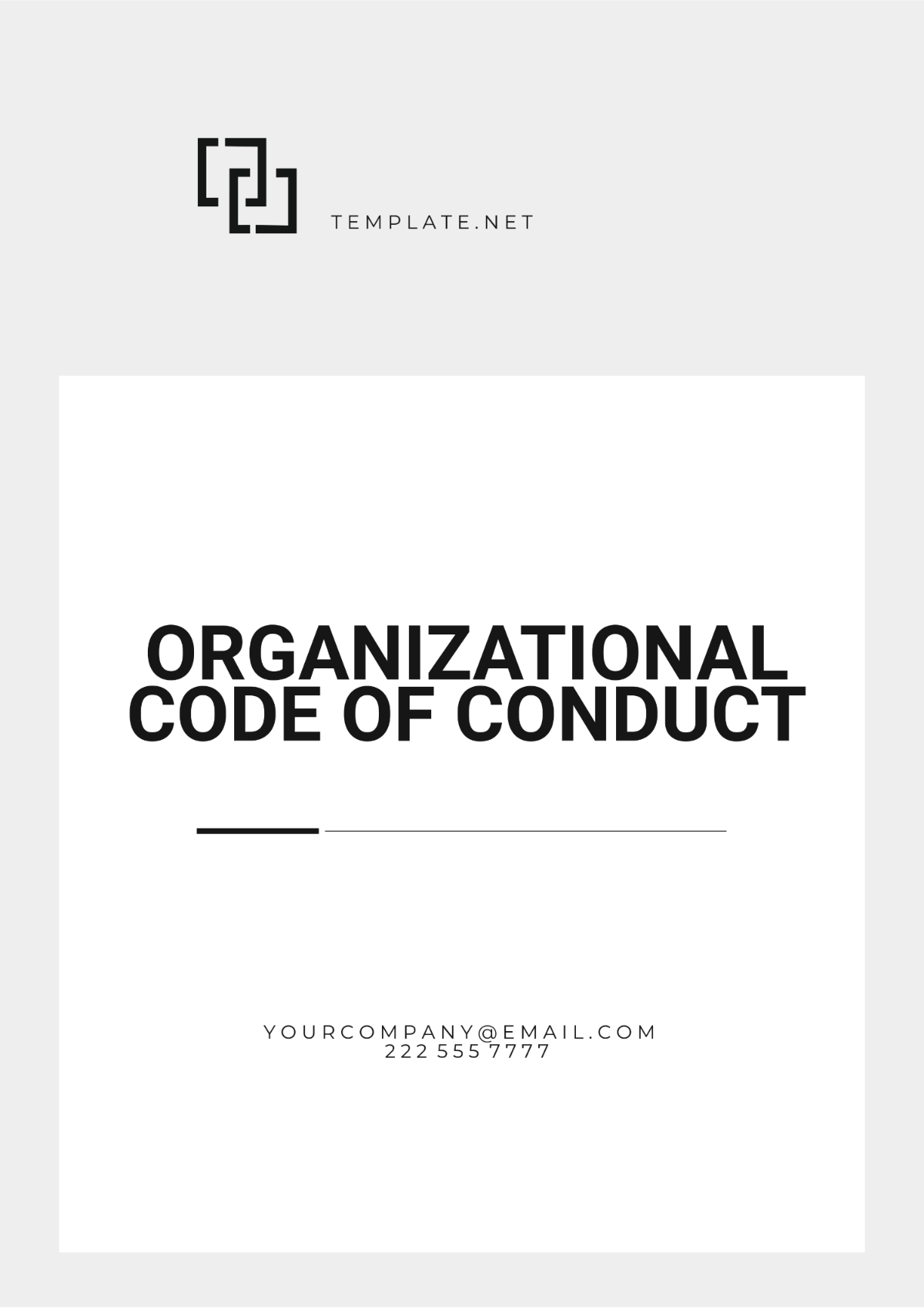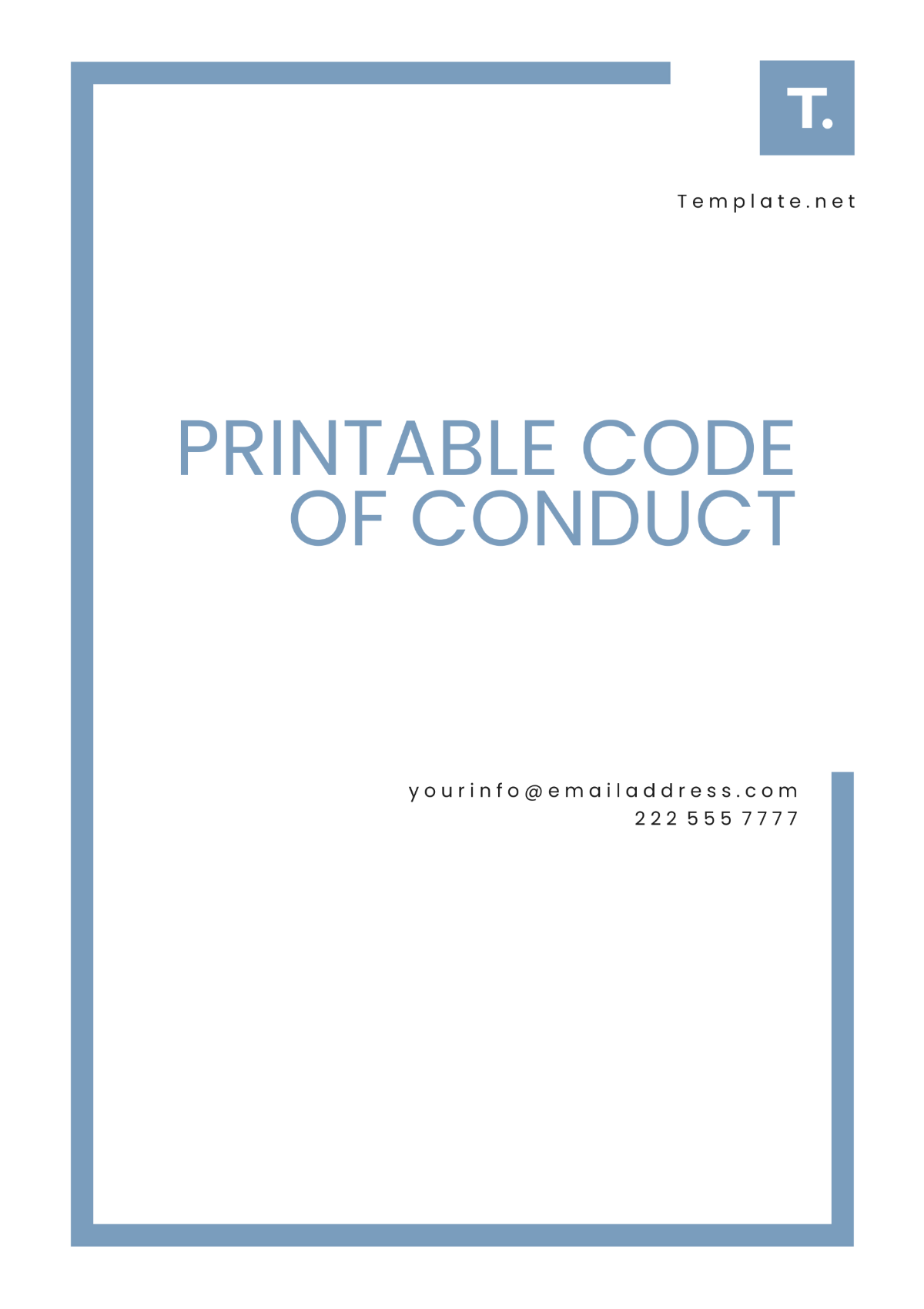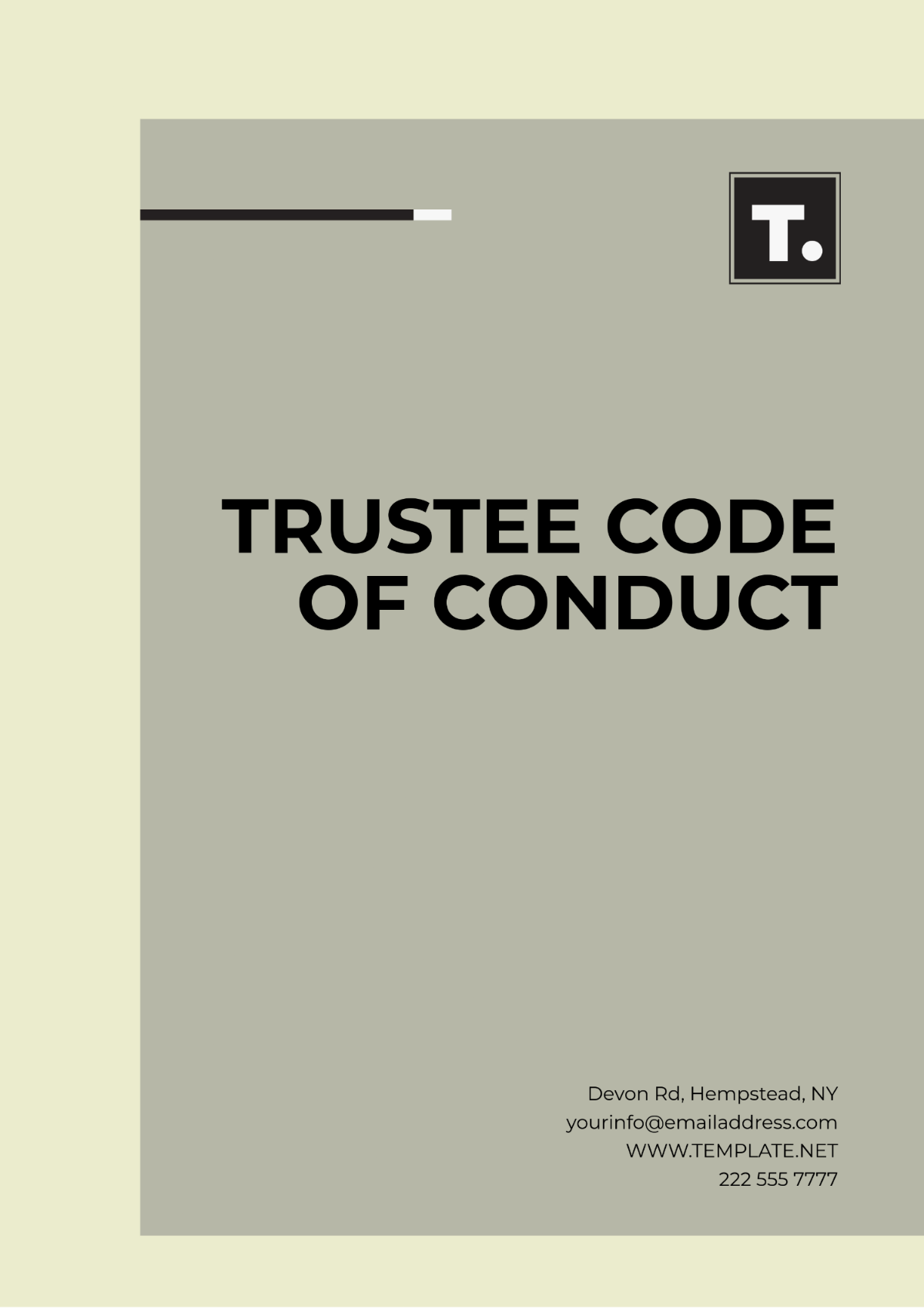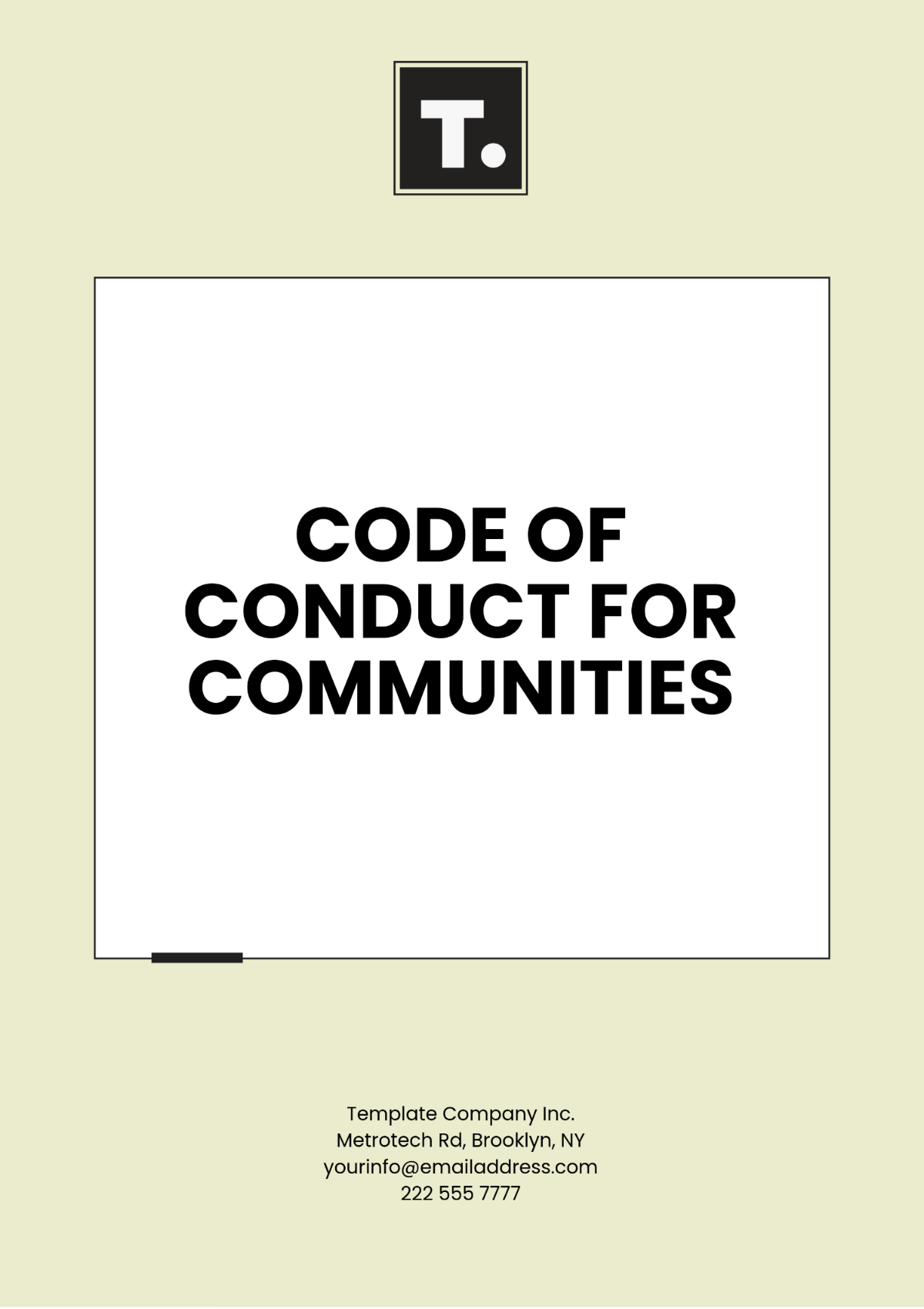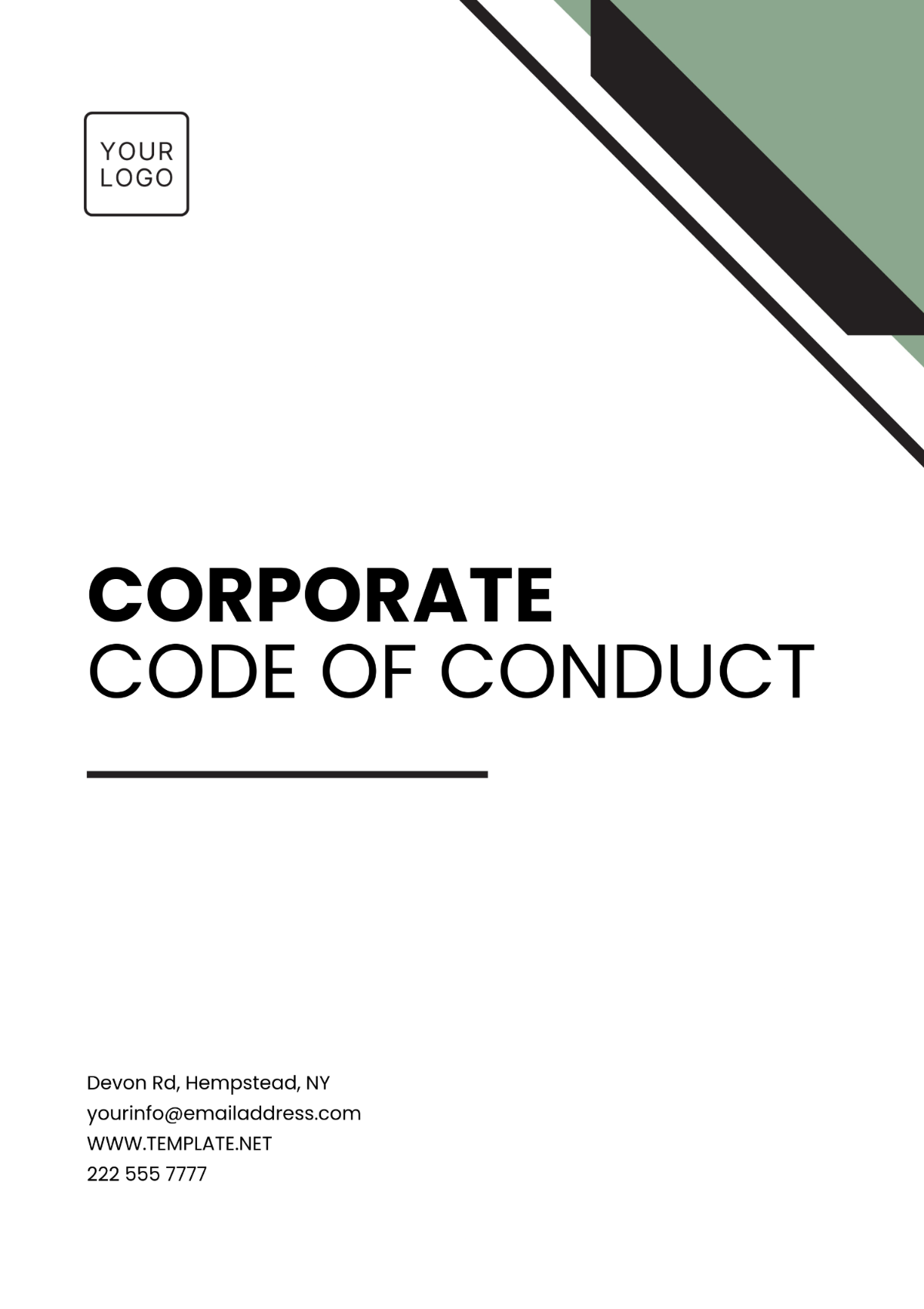Free Case Studies Code of Conduct Template
CASE STUDIES CODE OF CONDUCT
_____________________________________________________________________________________
_____________________________________________________________________________________
This Code of Conduct outlines the ethical guidelines and standards essential for conducting, documenting, and presenting case studies at [Your Company Name]. It aims to ensure the integrity, transparency, and respect for subjects involved in our case studies while maintaining the credibility and reliability of the research outcomes.
_____________________________________________________________________________________
I. General Principles
Maintain high ethical standards in all research activities.
Ensure transparency and honesty in documenting and presenting research findings.
Prioritize the dignity, rights, and welfare of all participants involved in case studies.
Comply with all applicable laws and regulations in the jurisdiction where the research is conducted.
II. Ethical Guidelines
A. Informed Consent
Obtaining Consent: Researchers must obtain informed consent from all participants involved in the case study. This includes providing clear information about the purpose, procedures, risks, and benefits of participation.
Capacity to Consent: Researchers must ensure that participants can consent, especially in cases involving vulnerable populations or individuals with limited decision-making abilities.
B. Confidentiality and Anonymity
Protecting Confidentiality: Researchers must protect the confidentiality of participants' information by ensuring that data is stored securely and only accessible to authorized individuals.
Maintaining Anonymity: Researchers should maintain anonymity when presenting case study findings, using pseudonyms or other identifiers to protect the privacy of participants.
C. Conflict of Interest
Disclosure: All parties involved in the case study process must disclose any conflicts of interest that could potentially bias the research or its outcomes.
Mitigation: Efforts should be made to mitigate conflicts of interest, such as by involving independent reviewers or advisors in the research process.
III. Research Integrity
A. Accurate Representation
Fidelity to Data: Researchers must accurately represent findings and ensure that interpretations are grounded in the data collected during the case study.
Avoiding Bias: Efforts should be made to avoid bias in the selection, analysis, and presentation of case study data, including acknowledgment of limitations and alternative interpretations.
B. Transparency
Disclosure of Methods: Researchers should provide transparent documentation of research methods, including data collection procedures, analysis techniques, and any deviations from the original study design.
Openness to Scrutiny: Researchers should be open to scrutiny and willing to share data, materials, and methods with other researchers to promote transparency and reproducibility.
IV. Legal and Regulatory Compliance
A. Compliance with Laws and Regulations
Adherence to Ethical Standards: Researchers must ensure that case studies are conducted by applicable laws, regulations, and ethical standards governing research involving human subjects.
Protection of Rights: Efforts should be made to protect the rights and welfare of participants, including compliance with relevant institutional review board (IRB) protocols and guidelines.
B. Intellectual Property Rights
Respect for Intellectual Property: Researchers must respect intellectual property rights and give appropriate credit to sources, including obtaining permissions for the use of copyrighted materials.
Authorship and Attribution: Authorship should be based on substantial contributions to the case study research, and proper attribution should be given to all individuals or entities involved in the research process.
V. Enforcement and Compliance
A. Reporting Violations
Reporting Mechanisms: Procedures should be established for individuals to report violations of the Case Studies Code of Conduct, including designated points of contact and confidential reporting channels.
Investigation Process: Reports of violations should be promptly and thoroughly investigated, with appropriate disciplinary actions taken against individuals found to be in breach of the Code of Conduct.
B. Compliance Monitoring
Regular Review: The Case Studies Code of Conduct should be subject to regular review to ensure its effectiveness and relevance to evolving ethical standards and practices.
Training and Education: Efforts should be made to provide training and education on ethical conduct in case study research to all individuals subject to the Code of Conduct.
VI. Contact Information
Contact Type | Details |
|---|---|
[Your Company Email] | |
Address | [Your Company Address] |
Website | [Your Company Website] |
_____________________________________________________________________________________
